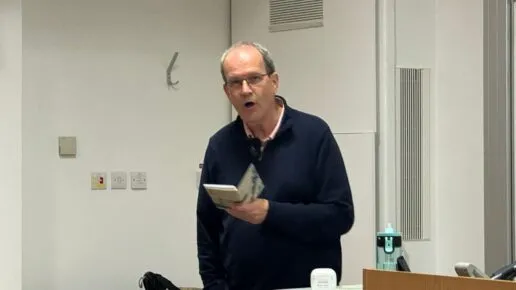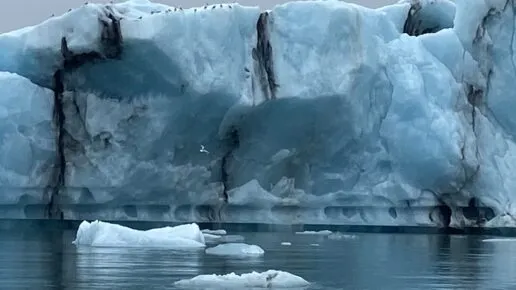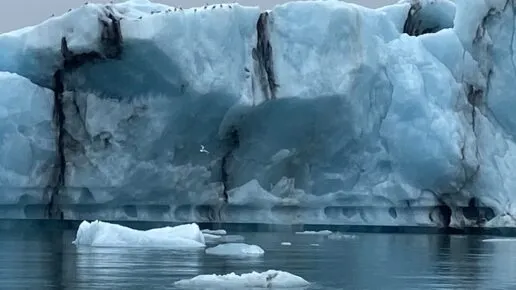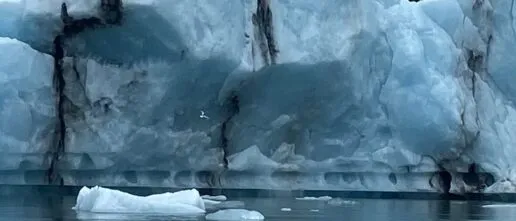“In the dark times will there be singing? Yes, there will also be singing, about the dark times.”
At a time when the twin crises of climate change and biodiversity loss can feel overwhelming, Professor Jules Pretty offered a passionate and radical reminder: stories still matter. They shape how we see the world, how we act within it, and how we sustain hope when the data looks bleak.
Pretty began with a simple question: how do we talk about these issues without making people anxious, and how do we turn talk into agency? For decades, he noted, environmentalists have focused on “the bad stuff”: decline, depletion, destruction. But if we only tell stories of loss, we risk paralysing people with despair. The task now, he suggested, is to tell stories of transformation—of what could happen, not only what has gone wrong.
Why Stories Matter
All human cultures are storytelling cultures. From the first fireside tales, stories helped people learn “without risk”, to imagine dangers and solutions before experiencing them. Traditional stories, Pretty reminded us, share three enduring features:
- A moral dimension, without moralising.
- Practical lessons, “instructions for living”.
- A sense of transformation, the possibility of becoming something new.
Transformation sits at the heart of Ovid’s Metamorphoses and of every fairy tale where a threshold is crossed, where an ordinary person enters a special world. Whether Cinderella, Jack the Giant Killer, or Alice in Wonderland, these tales remind us that change begins with imagination and courage. In climate storytelling, we too are “in the hole”, as Kurt Vonnegut might put it. But instead of fixating on how we fell, we must narrate our climb out.
Stories of Decline and Renewal
Pretty recalled visiting fishing communities while writing Sea Sagas of the North. One fisherman told him, “We were kinder and more tolerant when we had the fish.” When the fish disappeared, so did the fishermen and their stories. Ecological decline, he reflected, is always bound to cultural decline. Yet the inverse is also true: cultural renewal can drive ecological recovery.
From Story to System Change
Transformation, he argued, is not just personal but systemic. He pointed to the collapse of mobile phone giants like Nokia and Motorola within five years of the iPhone’s release, proof that one catalytic event can flip an entire system. The same is true of climate action: countries such as Iceland, Norway, Bhutan, and Costa Rica have already made the leap to 100% renewable electricity because they simply decided to do so.
Tim Lenton’s work on positive tipping points offers a scientific vocabulary for this process. Kenya, for instance, has shifted from spending half its income on fossil fuels to generating 97% of its electricity renewably. Electric vehicles, doubling globally every 1.5 years, could outnumber fossil-fuel cars within six.
These examples remind us that good growth is possible, what Pretty calls “regenerative growth”, where economic expansion restores rather than erodes nature.
Focus on the Middle 60%
Public belief has already tipped: over 80% of people worldwide accept that climate change is real and human-caused. The challenge, Pretty argued, is not conversion but mobilisation. We should focus on the “middle 60%”, those who believe but have yet to act.
His advice was simple and human: set the bar low enough that anyone can step over it. “Bring a brick, not the cathedral.” Offer choices, let people disagree, and make it easy to begin. Transformation happens when enough people take small steps in the same direction.
Hope as Subversion
Drawing on Ursula K. Le Guin, Pretty closed by calling imagination “subversive”. To imagine better worlds is itself an act of rebellion against despair. Even the myth of Sisyphus, he suggested, can be retold not as endless futility but as perseverance, the daily rolling of a stone towards light.
The seminar ended, fittingly, with a poem by Mary Oliver, one that captures the quiet voice of renewal at the heart of Pretty’s message.
Last Night the Rain Spoke to Me
By Mary Oliver
Last night
the rain
spoke to me
slowly, saying,
what joy
to come falling
out of the brisk cloud,
to be happy again
in a new way
on the earth!
That’s what it said
as it dropped,
smelling of iron,
and vanished
like a dream of the ocean
into the branches
and the grass below.
Then it was over.
The sky cleared.
I was standing
under a tree.
Imagine! imagine!
the long and wondrous journeys
still to be ours.
Jules Pretty is Professor of Environment and Society at the University of Essex, and author of Sea Sagas of the North and The Edge of Extinction. His research explores the connections between sustainability, wellbeing, and the stories we tell about the natural world.
Visit Jules’ YouTube channel here



